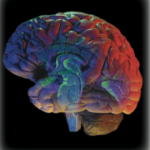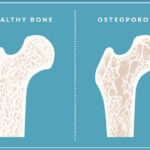Nutritional Supplements
What you need to know to get it right!
-
What is a common list of nutritional supplements? Vitamin E, vitamin C, calcium, CoQ10, fish oil, iron, calcium and multivitamin are some of the most common supplement products. Each person should determine with testing and questionnaires the best supplements and dosages for them as individuals.
-
What are dietary supplements side effects? Side effects of supplements are commonly gastrointestinal such as gas, bloating and diarrhea. Each supplement has its own side effect profile. For example too much calcium will hardening arteries, promote stones and arthritis and even breast cancer. Too much vitamin E will cause excessive bloohttps://www.blooddetective.com/products/amino-acid-complete?_pos=1&_sid=083c297cf&_ss=rd thinning. A trained nutrition health care provider will know how to recommend and adjust your vitamins to your needs.
Benefits of dietary supplements?
VITAMIN, MINERAL, HERBAL SUPPLEMENTATION
Listen to the Live or Die – Doing it Right, Your Choice! Show
Do you need nutritional supplements?

If you are reading this page you are probably curious about how to use nutritional supplements properly. You might also want to know if nutritional supplements are necessary at all – particularly if you eat a “balanced’ or healthy diet. The information below should help clarify your questions and concerns regarding nutritional supplementation.
Dr. Michael Wald is the author of two popular books among Anti-Aging doctors entitled: The Encyclopedia of Nutritional Laboratory Tests and, The Encyclopedia of Anti-Aging Nutritional Tests. Dr. Wald literally invented the Blood Logic System (computer program) helping him determine the unique bio-nutritional needs of his patients. Although his technology is considered experimental, we are excited to make it available to all of our patients. In short, here is how the Blood Logic system developed by Dr. Wald works:
Foods vs. Nutritional Supplements
How do you compare to healthy people? Here are some of the ways that Dr. Wald determines what nutritional supplements you may need…

- Dr. Wald puts the results of your blood work into his software and the software compares your results to what are thought to be “healthy” blood ranges and not just the “average” or clinical ranges that you find on your blood results paperwork. Nutritional recommendations are provided that considers all of your blood test results even the so-called normal blood test results. Dr. Wald feels that sometimes you might need a BETTER NORMAL, especially if you do not feel well and your blood tests are “normal”.
- Then Dr Wald considers other factors to further personalized his dietary and nutritional supplement recommendations including family and personal health history, your sleep habits, exercise or lack thereof (too much or too little or just the right amount of exercise has nutritional consequences and needs).
- What is your diet like?
- Do you absorb normally? Have you had tests of malabsorption? Have these tests been taken into consideration in the design of your nutritional plan?
- Your responses to one or more health questionnaires – Dr. Wald uses his own specially designed health questionnaires to help him uncover what’s behind your health concerns and what to do about it.
-
Dr. Wald will conduct a detailed health history that he will use to develop a structured and well-thought out healing approach.
Traditional medicine has only remedial training in nutrition and is trained in only the RDA (minimal) governmental requirements of various nutrients to prevent nutritional deficiency.
We are committed to helping to figure out your nutritional needs in these and other ways:
-
Careful health history and review of symptoms and signs specific for revealing nutritional inadequacies.
-
Visual inspection that helps provide additional and potentially supportive information regarding nutritional issues.
-
We often use dozens of different nutritional markers, standard and advanced laboratory testing and other non-blood technologies to help “put all of the pieces together”
-
Ongoing research using the National Library of Medicine and the Cochrane Data Base
-
Years of clinical experience, education and commitment
 Previous Post
Previous Post Next Post
Next Post